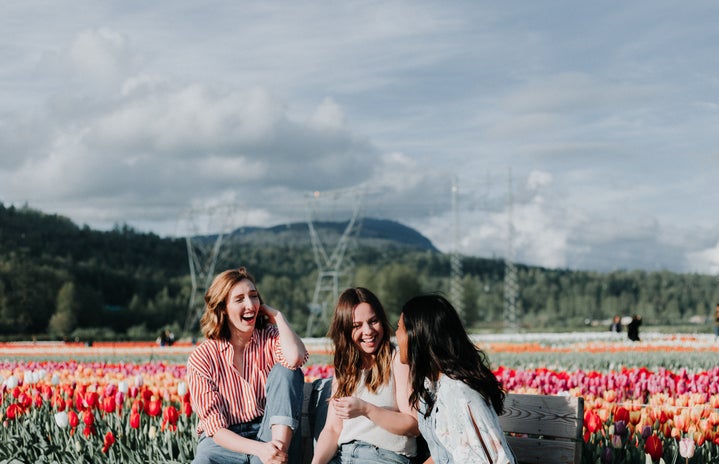The love I felt for making a collage for my story on March 8th was like no other. It’s the same feeling every year. Warmth, pride, and knowing that as women we have a deeper connection to each other for that very reason. However, being a woman runs deeper than collages on Instagram. That deeper connection women have comes from a place of hurt and grief experienced throughout the centuries.
I experience guilt in my everyday life that I now know comes from a place of internalized misogyny. “Internalised misogyny “is when women subconsciously project sexist ideas onto other women and themselves”. I’ve re-trained my mind to recognize it, but some thoughts creep up on you and consume every part of you.
I’m guilty of having the ‘but I’m not like other girls thought’, I’ve seen a girl walk past me in the street and made comments in my head about how she was dressed, and quickly stop myself and am upset about my own thoughts. For a year or so as a young teenager, I rejected the “girly” color of pink stating “I’m not like other girls!” In some ways, seeing the girls who acted in a traditionally feminine way as ‘inferior’.
I will forever watch what I eat, and I struggle to see a day where I will be comfortable with how I look. I always worry about how I am being perceived by others. I suck my stomach in, I watch how I sit to try and avoid any and all stomach rolls. I try and choose where I stand so people I don’t know very well don’t look at me from a certain angle. I cry in the bathroom and never at the table.
Women are expected to be a certain way and look a certain way. The rise of social media and diet culture perpetuates this idea. In 2019, there was a 42% rise of children being admitted to hospital with some form of an eating disorder. A worrying statistic that looks set to grow over the next years without societal change. We can learn to love our bodies as we truly should, but the culture we grow up in makes it difficult to do so.
The 97% statistic scares people, but not as much as we need it to. We need more men looking out for women when they are being harassed, more men to understand that it’s not okay to shout at me because you think I’m pretty. And that unlike the Instagram infographics on keeping women safe, it’s definitely not okay to ask to walk me home if you’re a stranger.
I want to be allowed to be fragile without being seen as “over-sensitive”. I want to go out without being shouted at about my legs or about things they’d like to do to me. I want to get angry and not be seen as trying to be bossy. I want my Black female friends to be afforded every opportunity they deserve. I want trans women to be more included in the conversation.
All these are wonderful things to want. But change comes from us. Change comes from listening to each other, listening to the experiences of other women. It comes from opening the conversation to more people of color, to more trans women, and to more women from the LGBTQIA community. As scary as it may seem sometimes, we must share our own experience of being a woman, no matter how difficult that may be.
Support your female friends. Hype them up, be proud of them and their talents. Show them you care safe in the knowledge that as a woman, other women will have your back.



